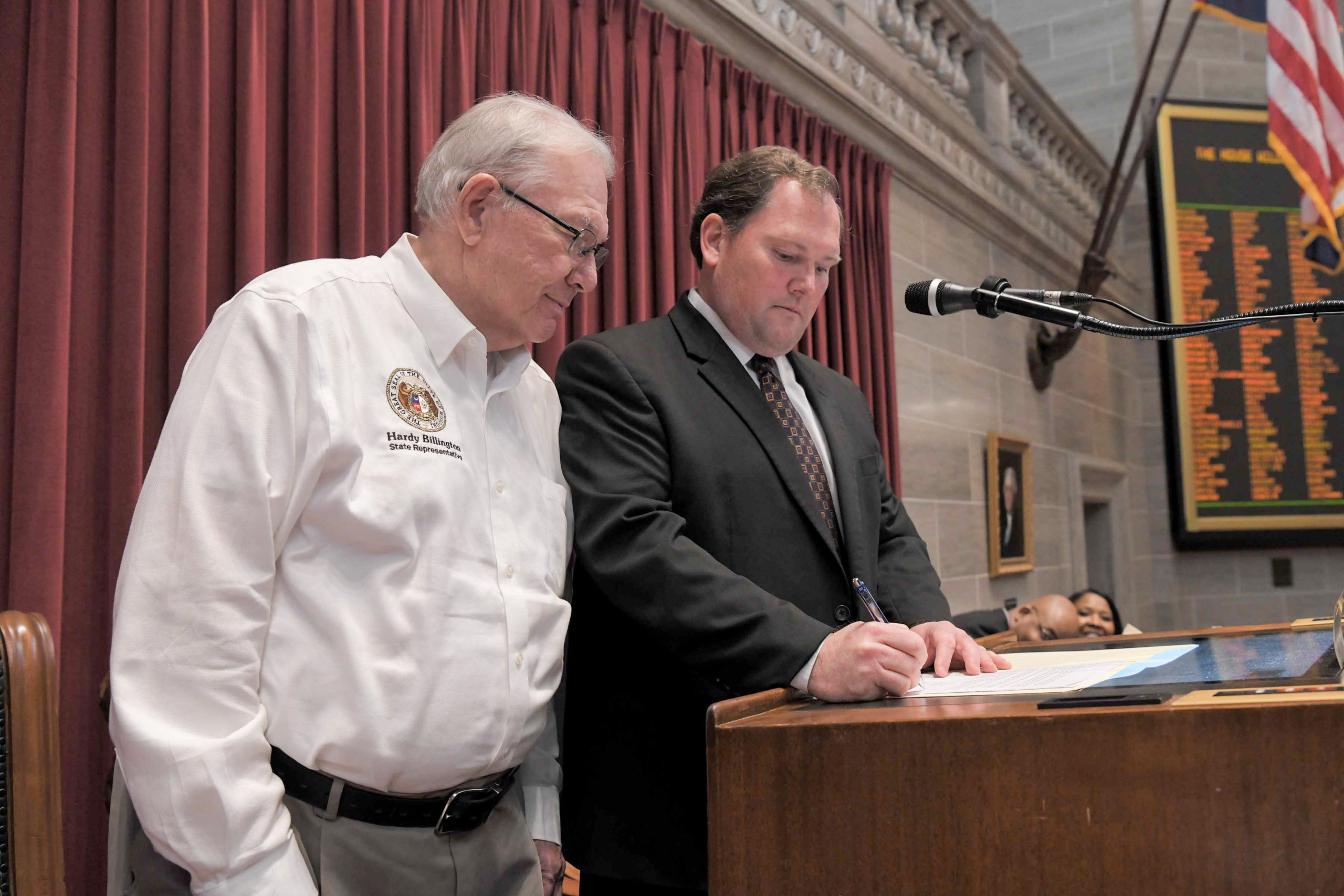JEFFERSON CITY, Mo. — Following a nationwide increase in catalytic converter thefts over the course of the COVID-19 pandemic, a bill signed into law Tuesday seeks to hamper down on the crimes in Missouri.
Among other changes to Missouri’s laws on metals, Rep. Hardy Billington’s HB 69 altered the penalties for theft of a catalytic converter, adding it to the offense of stealing. The first offense would be a Class A misdemeanor while any subsequent theft within a decade would be a Class E felony.
Billington’s bill also includes penalties for those stealing copper and other metals.
“I would like to thank my colleagues and industry representatives who worked together for a bill that has the potential to drastically cut down the untold damages caused by thefts of copper, catalytic converters, and precious metals,” Billington said.

Rep. Don Mayhew, who sponsored his own catalytic converter bill and worked with House Transportation Chair Becky Ruth to progress the legislation, called the rash of thefts an epidemic.
“It’s going to be a constant problem, and just about every community has been hit with it. Unfortunately, it’s low on the radar for most law enforcement because it’s difficult to catch and even more difficult to prosecute,” Mayhew previously told The Missouri Times.
Thefts skyrocketed across the U.S. last March as the COVID-19 pandemic gripped the country, according to a recent report from the National Insurance Crime Bureau (NICB). The same report said 17 other state legislatures considered similar actions this year.
Catalytic converter thefts have increased nearly 500 percent in St. Louis so far this year compared to the entirety of 2020, according to KMOV; the city has seen 610 thefts so far in 2021 as of Tuesday, while 110 thefts were reported last year.
“We have seen a significant increase during the pandemic. It’s an opportunistic crime,” NICB President David Glawe said. “As the value of the precious metals contained within the catalytic converters continues to increase, so does the number of thefts of these devices. There is a clear connection between times of crisis, limited resources, and disruption of the supply chain that drives investors towards these precious metals.”
The bill also requires scrap dealers to provide proof the product was lawfully acquired and mandates possession of the converter for five days before modifying it. Violations could result in fines of up to $10,000 after two offenses and the revocation of the vendor’s business license after three.
That provision was also included in Mayhew’s version — something that was altered in committee to remove language classifying the crime as a Class B misdemeanor following pushback from scrap dealers and other business owners.
Additionally, Billington’s bill requires purchasers of precious metals to refrain from altering them for at least 10 days after purchase and requires copper property peddlers in St. Louis to obtain licenses from the city. The bill also reforms the state’s policies on records of the sale of metal, requiring sales records to extend back three years.

Cameron Gerber studied journalism at Lincoln University. Prior to Lincoln, he earned an associate’s degree from State Fair Community College. Cameron is a native of Eldon, Missouri.
Contact Cameron at cameron@themissouritimes.com.


































